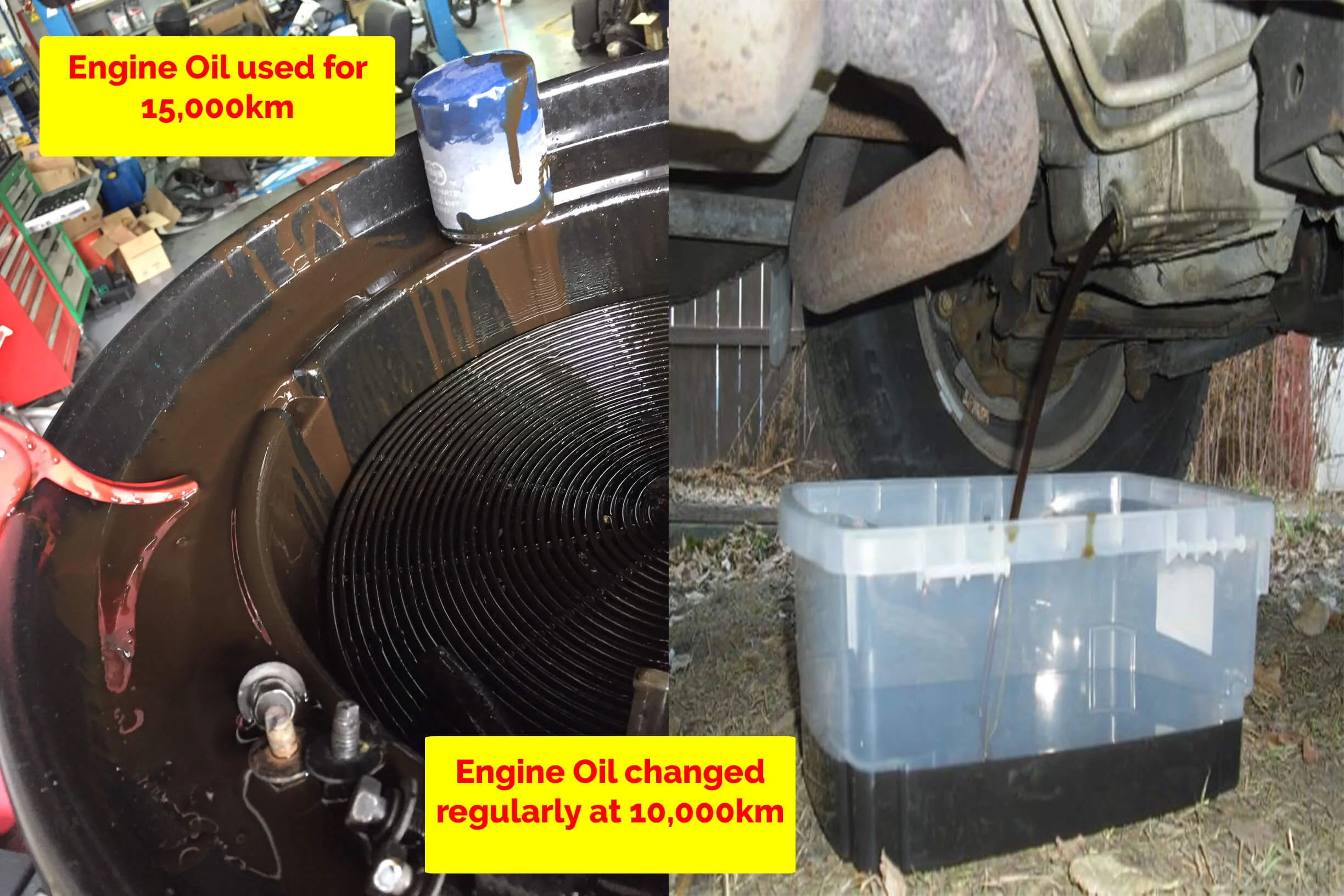The picture on the left shows the condition of an engine oil used for 15,000km while the one on the right shows the condition of an engine oil replaced regularly at 10,000km. When engine oil is used past its recommended lifespan, it is damaging to the engine. Why is this so?
The engine oil is meant to lubricate all the parts in your engine. By using the engine oil longer than the recommended time of change, it will cause the engine oil be lose its main functions of a lubricant. Overtime, the engine oil will solidify due to the high temperatures inside the engine and turns into sludge. These sludge are harmful to the engine as it might hinder the flow of the engine oil around inside the engine. When there is less lubrication, the engine will operate at higher temperatures and friction is higher. The worse case scenario is when the sludge blocks off a pathway and causing a blockage resulting in engine oil not being able to flow in the jackets and pathway.
Below is a picture of sludge being formed on the engine head.
You can see that the sludge are being built up on the cam shafts. Imagine the cam shafts in your engine not being able to function at 100% due to the sludge formed inside. The performance of the engine will be affected. There will be much more stress on the mechanical parts and hence consuming more fuel.
This is why you shouldn't be skipping your servicing appointments and be sure to service your car early. Unnecessary expenses on engine overhaul could be prevented through timely servicing and maintenance routines.




